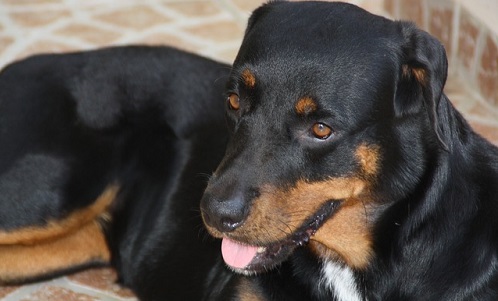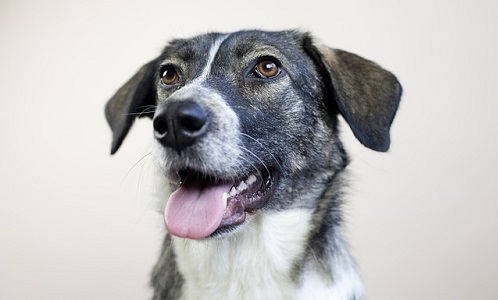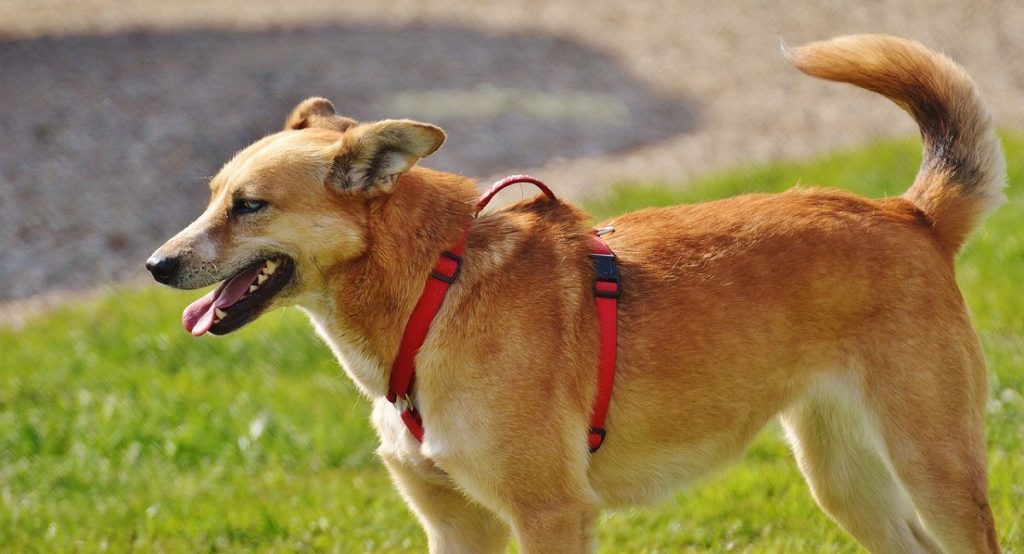The decision to neuter your dog is an important part of being a pet owner. Although the operation is standard, it can be nerve-wracking taking your dog in for surgery. Despite the anxiety of putting your dog through the procedure, many pet owners find that neutering their dog is well worth it.
Benefits of Neutering Your Dog
There are many benefits of spaying or neutering your pet. In addition to steering clear of unwanted puppies, there are many pros to neutering your dog. A neutered pup will be less likely to contract certain illnesses including prostate disease and testicular cancer. Benefits of neutering a dog also include a reduction in the size of an enlarged prostate. Neutering is recommended for dogs even if their testicles don’t descend as this can be a sign of testicular tumors.
A fixed dog will also have a calmer demeanor and “mark his territory” less both inside and outside your home. This is because neutering your dog lowers his testosterone levels which tones down the instinct to have canine aggression and announce his dominance. A neutered dog is less likely to run away from home to try and find a mate. Lastly, the procedure is associated with dogs living longer, happier lives.
What Happens When a Dog is Neutered?
Knowing what to expect when your dog is neutered may help put your mind at ease. Neutering is a sterilization procedure administered to male dogs to prevent them from reproducing. Neutering your dog is a relatively simple surgery. A veterinarian puts the dog under anesthesia and makes an incision into the front of the scrotum. The canine’s testicles are removed through the incision and the stalks are cut. In most cases, the incision will be closed with stitches.
What is the Difference Between Spaying and Neutering Dogs?
 Simply put: male dogs are neutered and female dogs are spayed. When a female dog is spayed, a vet removes her ovaries, uterus, and fallopian tubes. Like neutering, spaying prevents a dog from being able to reproduce and stops her from going into heat. Spaying (sometimes referred to as an ovariohysterectomy) renders a female dog no longer able to reproduce and eliminates her heat cycle
Simply put: male dogs are neutered and female dogs are spayed. When a female dog is spayed, a vet removes her ovaries, uterus, and fallopian tubes. Like neutering, spaying prevents a dog from being able to reproduce and stops her from going into heat. Spaying (sometimes referred to as an ovariohysterectomy) renders a female dog no longer able to reproduce and eliminates her heat cycle
Alternative procedures to neutering and spaying are available, but not common. Some pet owners opt for a vasectomy for their male dog which severs the tubes that conduct sperm from the testicles. An ovariectomy is an alternative procedure for female dogs in which only the ovaries are removed.
When Should I Neuter My Dog?
Dogs can be neutered after eight weeks of age, but some veterinarians may recommend waiting until a pup is six months old to neuter him. Consult your vet to determine the best time to neuter your dog.
Typically, if dogs are neutered before they hit puberty (around six months), they will grow to be larger than those that get the procedure after puberty. In general, dogs that are neutered before they go into puberty grow a bit larger than those neutered after puberty. This is believed to be because testosterone dictates when a dog’s bones should stop growing and with lower levels of the hormone, some dogs may continue to grow.
Preparing Your Dog to Get Neutered
Most vet clinics will offer pre-surgical bloodwork to ensure your dog is in good health and a good candidate for the procedure. If your pet has any underlying health conditions, this may influence whether or not anesthesia will be administered.
In preparation for neutering your dog, be sure to carefully follow the instructions of your veterinarian. In most cases, you will be advised to not feed your pet at least eight hours before surgery to avoid a nauseating effect from the anesthesia. Letting your dog drink water before the procedure is usually fine.
Neutering Your Dog: the Day of Surgery
The majority of veterinary clinics will call for dog owners to drop their pet off in the morning to be neutered and picking them up in the afternoon after the procedure. The process of neutering a dog usually only takes around six hours.
Dogs will be given anesthesia that lasts for about 20 minutes during which a vet will perform the surgery. While your dog is anesthetized, your vet will closely monitor his heart and respiratory system to make sure he is stable during the procedure. After that, your pup will wake up and be carefully placed in warm, comfortable area for the next few hours. The majority of dogs will be ready to be picked up later that day.
When a dog is neutered, a vet will typically clip or shave a significant amount of hair on his belly. This ensures the procedure will be done in a safe, clean manner and is nothing to worry about. Some vets will apply a small tattoo to a dog’s stomach indicating that he has been fixed. Following surgery, some dog owners notice razor burn on the shaved area. This is normal and will resolve on its own.
Picking Up Your Dog After Neutering
Bring a towel or comfortable carrying case with you when you pick your dog up from the vet. You’ll want to make your pup as comfortable as possible for the car ride home. It may seem like a good idea to bring a treat for your dog to eat, but you’ll want to hold off until the anesthesia completely wears off to avoid potential vomiting in your car.
Upon picking up your dog from the vet, he will likely appear to be groggy and may show signs of pain or discomfort. It’s normal for dogs to lick the incision site after being neutered, but if he can’t leave it alone, you may opt for a cone collar. You might notice a number of different symptoms or behaviors right after surgery, but in most cases, your pooch will act like himself. Since some dogs are more sensitive than others to anesthesia, your pet may appear subdued and lethargic. If this is the case, take care in pampering him and letting him rest. Most dogs will start acting like themselves again after their first night of sleep back home.
When you get home, offer your dog a small meal of his regular dog food. This will assist with the healing process after almost a day of fasting. Keep a close eye on your pup for signs of an upset stomach after their first meal home.
Don’t be alarmed when you see that your dog’s belly has been shaved as this is a standard part of a spay or neuter procedure. You may also notice where the incision was made. However, neuter incisions on male dogs are typically hidden between their hind legs.
The Healing Process After Neutering Your Dog
When your dog wakes up the morning after surgery, he will likely be behaving more like his regular self. Feed him as you usually would and take him outside for a short, slow walk to go to the bathroom. If you have stairs in your home, you may want to carry your dog up and down them during the first few days. If you allow him on the couch, try to help your pet up onto furniture so that he doesn’t hurt himself jumping up. Furthermore, if you have other dogs at home, try to keep them separated from your pup after surgery so that they don’t get rambunctious and interfere with the healing process.
Check on your dog’s incision site a few times each day for the first day or two after surgery. If you notice redness, discharge, or significant bleeding, take your pup back to the vet for a follow-up.
 Although the procedure for spaying a female dog is slightly more complicated than neutering a male dog, the timeframe for healing is similar. If the surgery is completed without complications, the skin tissue around the incision site will take about two weeks to fully heal.
Although the procedure for spaying a female dog is slightly more complicated than neutering a male dog, the timeframe for healing is similar. If the surgery is completed without complications, the skin tissue around the incision site will take about two weeks to fully heal.
During the healing process, physical activity should be minimized. You’ll want to avoid any exercises that could irritate the incision site. However, short leashed walks outside for potty breaks are necessary. If your dog appears to only want to rest, let him. Allowing your pet to lay down in a dry, comfortable environment with access to fresh water will help him heal. In addition, bathing your dog should be avoided for the first two weeks post-surgery.
Pet owners that are familiar with their dog’s normal behavior will be able to identify any abnormal behaviors or issues after surgery. Most dogs will have a normal appetite and energy level within a day or two of returning home after being neutered. If your dog is not eating normally, exhibits lethargy for several days after surgery, or is walking strangely, it’s a good idea to notify your veterinarian and schedule a checkup.
After two weeks, most dogs should be healed from being neutered and will look and behave like normal. At this point, any external stitches will be removed by your vet. Some dogs receive absorbable stitches which will not need to be removed. However, absorbable stitches may take up to two months to fully absorb into a dog’s body.
In most cases, you don’t notice any personality or temperament changes after neutering your dog. Neutering your pet will alter his hormone levels, so in the long run, he may be less territorial or show signs of canine aggression. After surgery, your dog will go about his life as usual, but will not be at risk for reproducing.
What are the Risks of Neutering Your Dog?
Neutering and spaying are common surgeries, the majority of which go smoothly. Similar to humans, there are some risks associated with giving a dog general anesthesia, but complications are unlikely. It’s important that dogs are thoroughly examined by a veterinarian before scheduling their neutering appointment. Your vet will be able to advise you on whether it’s safe for your dog to undergo surgery.
Misconceptions About Neutering Your Dog
Some misconceptions about neutering dogs have been spread throughout the pet community and Internet. Some believe that a neutering your pet causes obesity in dogs. However, as long as pet owners provide their pup with adequate exercise and a proper diet, they will remain at a healthy weight. A dog’s daily calories may change after being neutered, but their diets can be easily adjusted to prevent weight gain. Another common myth about neutering a dog is that the procedure will change your pet’s personality. This is also false. While a lot of neutered dogs grow up to be less aggressive, your pooch will have the same temperament and personality quirks as he did before surgery.
How Much Does Neutering Your Dog Cost?
The cost to neuter your dog will depend on where you live as well as the size of your pet. Some veterinarian clinics may charge $50 to $100, while others can charge upwards of $200.
A low-cost procedure does not necessarily imply that your dog will receive inferior care.
Research the vet clinics in your area to compare prices for neutering your dog. The ASPCA (American Society for the Prevention of Cruelty to Animals) has an online search tool for finding affordable neutering clinics in your area.
Before booking your pet for any type of surgery, be sure to do your research and plan ahead. Ultimately, neutering your dog is a low-risk procedure with many benefits. With the right preparation, your pup will have a smooth recovery and be back to normal in no time.




